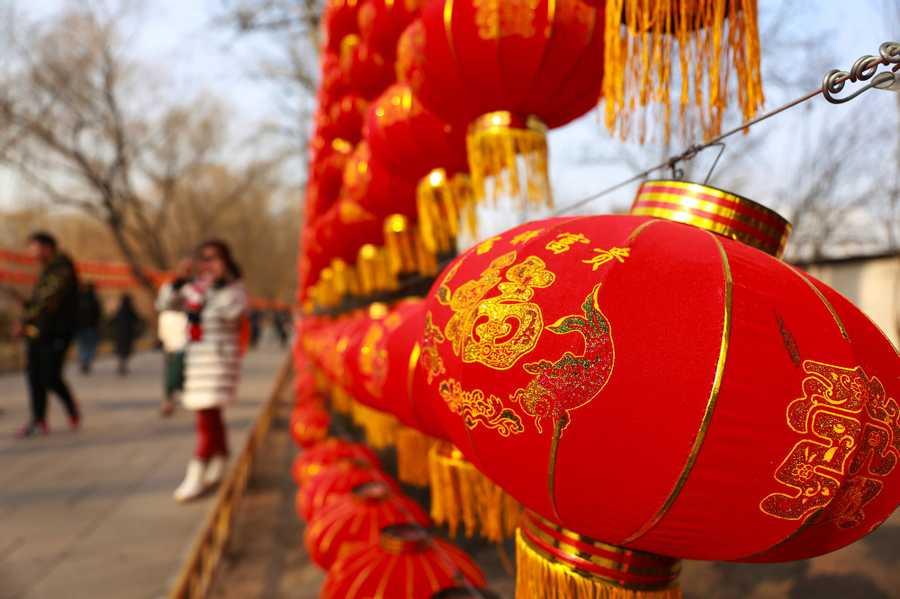The Lunar New Year's Traditions and Superstitions, Explained
Curated from: oprahmag.com
Ideas, facts & insights covering these topics:
6 ideas
·605 reads
4
Explore the World's Best Ideas
Join today and uncover 100+ curated journeys from 50+ topics. Unlock access to our mobile app with extensive features.
The Lunar New Year
- A massive holiday in several Asian countries is the Lunar Year.
- It is commonly associated with the Chinese New Year or Spring Festival.
- It is so named because it marks the first new moon of the lunisolar calendars traditional to many east Asian countries.
- It usually falls somewhere between January 21 and February 20 annually.
- In 2021, the Lunar New Year is on February 12, and, according to the Chinese zodiac animal, it is the Year of the Ox.
24
170 reads
The Lunar New Year is not the Chinese New Year
In China, New Year's eve is the start of the 15-day celebration. It starts with a family feast called a reunion dinner filled with traditional Lunar New Year foods. It usually ends with the Lantern Festival.
But the Lunar New Year isn’t the same as Chinese New Year. In the U.S., the Lunar New Year is most commonly associated with the Chinese New Year, the American version of China’s 15-day long festivities.
19
105 reads
Spring Festival is a weeklong holiday
These days, in mainland China, almost everyone refers to the new year as the Spring Festival. Everywhee else, they still call it 'new year.'
Spring Festival is a weeklong holiday in the People's Republic of China. In 2021, it is February 11-17. The travel period before that holiday is known as Chunyun, where millions of people trek home to celebrate the new year with their extended families. It is the largest human migration on the planet.
20
69 reads
Lunar New Year: The layers of meaning and symbols
- Upside-down fu characters on a square of red paper. The character, 福 [fú] means good luck and is hung upside down for Lunar New Year. The word 'to arrive' is a homophone for the word 'upside down'. So, the symbol means that good luck is arriving,
- Red pockets full of money. In China, these are traditionally gifted from an elder or parent to children or anyone unmarried.
- Firecrackers and fireworks. They are set off throughout Lunar New Year to ward off an ancient monster called Nian.
20
96 reads
Traditional dances
Traditional dances and gymnastic performances are part of a Lunar New Year parade.
- The Lion Dance typically has two performers inside the costume, operating as the front and back legs.
- The Dragon Dance shows puppeteers holding poles as they make the dragon move.
21
62 reads
Taboos and superstitions
Attracting good fortune into the next year and warding off bad luck.is a big theme of the holiday.
- You're not supposed to cry or argue, only talk about good things.
- You have to pay back your debts before you enter the new year.
- Stay away from scissors on the Lunar New Year.
- Avoid wearing black or white as it is associated with mourning.
- Attract luck by wearing red.
- Don't do laundry on the first two days of the new year, because they are celebrated as birthday oh Shuishen, the Water God.
22
103 reads
IDEAS CURATED BY
Charlotte Wood's ideas are part of this journey:
Learn more about personaldevelopment with this collection
How to stay motivated
How to create a workout routine
Proper form and technique for home workouts
Related collections
Similar ideas
6 ideas
The Origin and History of Chinese New Year: When Start and Why
chinahighlights.com
10 ideas
10 Halloween traditions from around the world
trafalgar.com
2 ideas
Read & Learn
20x Faster
without
deepstash
with
deepstash
with
deepstash
Personalized microlearning
—
100+ Learning Journeys
—
Access to 200,000+ ideas
—
Access to the mobile app
—
Unlimited idea saving
—
—
Unlimited history
—
—
Unlimited listening to ideas
—
—
Downloading & offline access
—
—
Supercharge your mind with one idea per day
Enter your email and spend 1 minute every day to learn something new.
I agree to receive email updates

